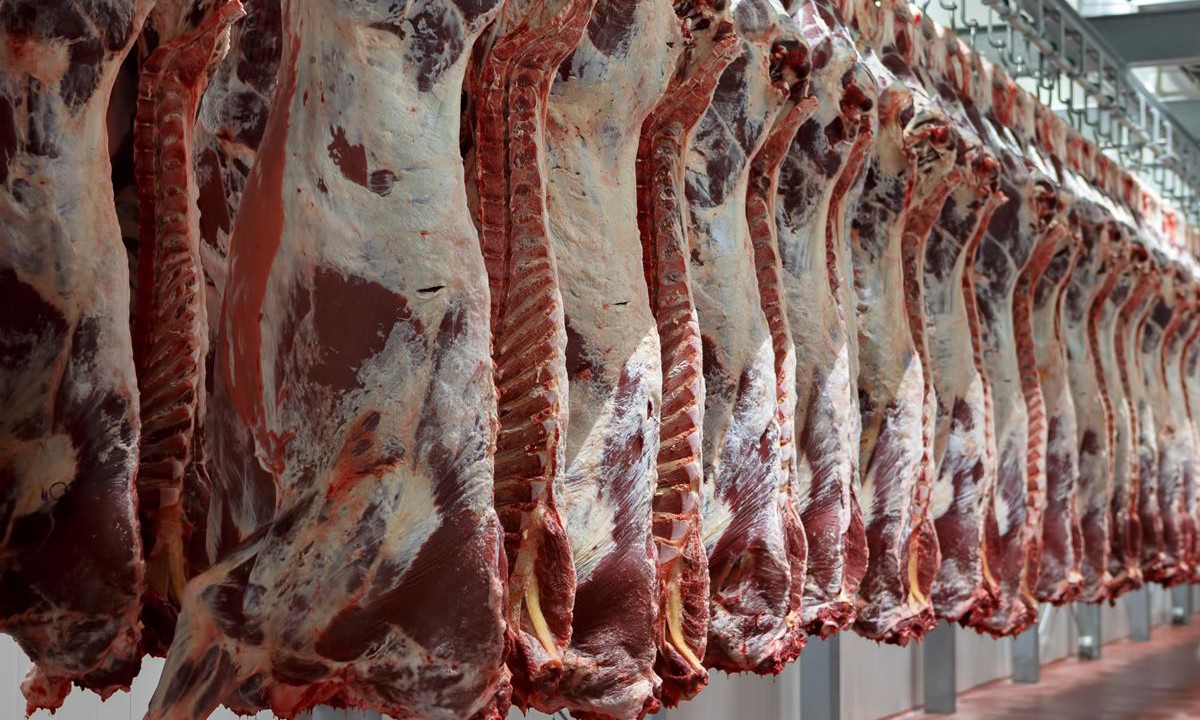Stakeholder groups within Northern Ireland’s beef and lamb sectors have issued a withering perspective on the threat of a ‘no-deal’ Brexit. But, in reality, their fears can be echoed across the UK.
A combination of high tariffs, where exports are concerned, and the impact of cheap beef imports from regions such as South America, could serve to wipe out farm incomes across the livestock sectors, these stakeholders warn.
A statement outlining this was issued – in tandem – by the Ulster Farmers’ Union (UFU), the Northern Ireland Meat Exporters’ Association and the Livestock and Meat Commission.
It read: “A no-deal Brexit is the absolute worst possible outcome for Northern Ireland’s beef and lamb industry. Worth £1.3billion to the local economy and representing 25% of total agri-food sector output, the ramifications are serious.
A ‘no-deal’ will jeopardise our ability to export. It will undermine our domestic market. It is crucial that decision makers fully understand the devastating economic and social impact it will have on Northern Ireland, and that every effort is made to avoid it. This is not project fear. This is project fact.
“Vulnerable sectors, like beef and lamb, have been rightly nervous about what a no-deal Brexit UK trade policy will mean for their future. Information and facts released in recent weeks have made for stark reading. There will be steep tariff and regulatory barriers and we no longer need to speculate about the disastrous consequences for our farming industry,” continued the statement.
The three parties concerned also warned of the potential for countries such as the US and Brazil being able to export 230,000t of beef to the UK tariff-free, thereby increasing competition with cheaper-produced goods.
The stakeholders raised similar concerns regarding lamb, saying the “forecast is grim”, despite apparent intention to apply full tariffs.
The UK is self-sufficient for lamb and the current market is finely balanced. In a no-deal scenario, EU tariffs will freeze the UK out of the European market. While at home, with an allocated quota of 114,000t for New Zealand lamb, the UK market will be oversupplied and farmgate prices will ultimately suffer.
“All this, combined with no tariffs or checks on agricultural goods travelling from the Republic of Ireland to Northern Ireland – effectively creating a legal ‘back door’ to the UK market – and with no reciprocal arrangement on offer, the facts show Northern Ireland’s beef and lamb industry is facing a crisis,” the statement went on to say.
It also highlights the regulatory conditions that the UK would face for exporting to the EU in the event of a no-deal Brexit; regulations such as health certificates for animals and meat would be “onerous”, it was argued.
“Of particular concern is the requirement for vets to certify meat from cattle to show a clear TB test three months before slaughter. Something that is impossible under the UK’s current testing regime.
“The no-deal export regulations for live cattle and sheep will cause irreparable damage to marts in Northern Ireland. Livestock exports to the EU will no longer be able to transit through a market prior to export,” the three groups warned.
The regulations state animals must remain on the farm of birth or their previous holding for at least 40 days before they are eligible for export. These are examples of totally unworkable regulations that will come into play in the event of a no-deal.
“As Parliament continues to agonisingly deliberate over the UK’s exit from the EU, Government is ramping up its no-deal contingency preparations. Other devolved regions in the UK have allocated multi-million pound budgets to help businesses cope.”
The statement concluded by saying: “Northern Ireland is widely recognised as the region that will suffer the most in the event of a no-deal Brexit. It is essential that Government is primed to commit financial support to the beef and lamb sector to help mitigate the significant damage caused.”

